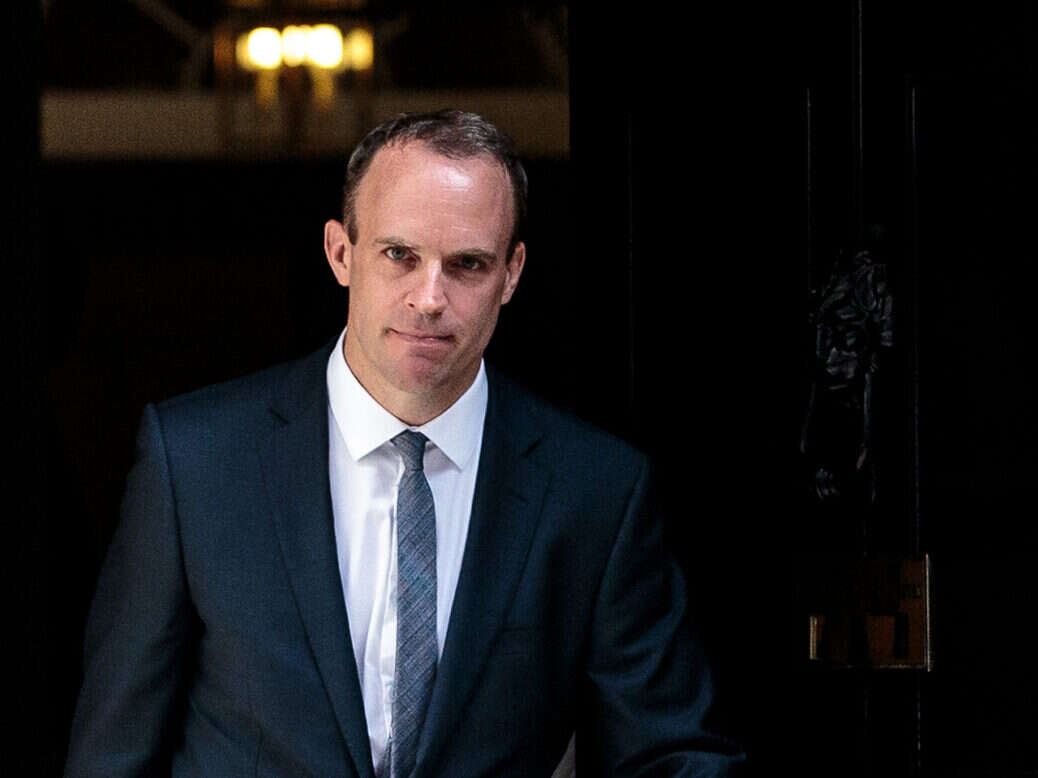
A small reshuffle happens and Dominic Raab stays in office. And, if the test for whether he should stay in office is whether it has been found he broke the ministerial code, so he should. In contrast to the Nadhim Zahawi case, establishing whether Raab broke the ministerial code by bullying his officials is not a straightforward matter. With Zahawi, once someone was in possession of the details of when HMRC had started to ask questions about his tax arrangements (April 2021) and his subsequent ministerial declarations of interests (“nothing to see here”), there was little room for interpretation.
Determining whether Raab’s treatment of his officials constituted bullying (which is explicitly prohibited under the code) is a more complicated and contentious matter. Raab maintains he behaved appropriately; quite a few officials maintain that he did not. A KC, Adam Tolley, is investigating and, on the specific point of adherence to the ministerial code, it is right to wait until he has completed his enquiries.
Let us, for the moment, leave to one side Raab’s alleged breach of the code (and even the question of decency), and specifically address a point made by him and his defenders. Raab, we are told, may be unpopular with his officials but that is because he has high standards and is demanding of them. Yes, he may be abrasive, we are told, but that is how you get things done in Whitehall.
It is not an uncommon view that civil servants are obstructive and will only deliver on a minister’s agenda if the minister browbeats, badgers and bludgeons them into submission. It may be a widely held view, but it is wrong. Given that there is likely to be a very large number of first-time ministers at some point next year (all of whom are, I assume, avid readers of the New Statesman), now is the time to challenge it.
It is only fair to acknowledge that being a minister can be highly demanding and pressurised, and even the most patient will find their tempers fraying from time to time. It is also fair to acknowledge that if the work of officials is below the standards required, they need to know about it. And, yes, officials should feel tested and stretched by ministers. But none of this requires nastiness.
Perhaps the most challenging and effective minister in recent years – in terms of both his willingness to question Whitehall orthodoxy and his ability to get things done – is Michael Gove. His officials must be at the top of their game because he will tenaciously ask searching questions and test arguments that will expose any intellectual weaknesses in the advice he receives. But he does not seek to humiliate or belittle officials and has a reputation for being courteous and polite.
Unpleasantness does not help but hinders. Ministers have to challenge the advice they receive but they should also want officials to have the confidence to challenge a minister’s thinking before a decision is made. A robust internal debate is much more likely to result in a robust policy decision that survives contact with reality.
A good minister will want officials to speak their mind, including junior officials who may be unfamiliar to them but are in the room because they have the most specialist knowledge about the matter under discussion. They may not always have the confidence to contribute as much as they should without encouragement from the minister (something George Osborne was particularly good at doing). If the official fears that their intervention might be belittled by the minister, they will stay quiet.
One of the biggest challenges that civil servants have is to bring to ministers unwelcome news. There can be a tendency to delay doing this in the hope that a problem will go away or that a solution will emerge before the minister need worry about it. This can create an unhealthy culture in which problems remain unaddressed and deteriorate. A department is more likely to have a culture of constructive openness if the response from the secretary of state is “how do we solve this problem?” rather than “which one of you idiots screwed up?”
Most ministers appreciate that it is a great privilege to have, in your private office, a team of young, clever and hard-working officials, all of whom share your fascination with politics, whose principal task is to help you do your job. These officials could work elsewhere in or out of Whitehall. Acquire a reputation of being unpleasant and some of the best of them will do precisely that. The private office and, therefore the minister, will be less effective as a result.
Now let us return to the case of Dominic Raab. When one hears evidence of frequent unpleasantness towards officials, our presumption should be not that this is a driven and effective minister, but a minister who creates a counterproductive culture in which officials are demotivated, bad ideas insufficiently challenged and bad news reluctantly shared. This is a rebuttable presumption (see “Gordon Brown”), but Raab lacks a list of ministerial accomplishments that rebuts it.
Whether he is guilty of bullying or not, Raab’s managerial style and record in office suggest that he is an ineffective minister. Even if he has not breached the ministerial code, that is reason enough for him to go sooner rather than later.
Read more:
Will Dominic Raab be sacked next?
Rishi Sunak’s reshuffle won’t revive his political fortunes
What was the point of Rishi Sunak’s reshuffle?





